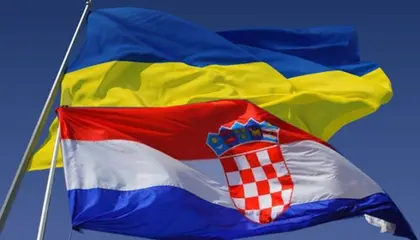The Croatian government on Friday, Dec. 16, failed to win its parliament's support to train Ukrainian soldiers under a European Union programme which has split the country's leaders.
The European Union is launching its largest ever military training mission aimed at readying an initial 15,000 Ukrainian troops in several member countries.
JOIN US ON TELEGRAM
Follow our coverage of the war on the @Kyivpost_official.
Participation in the mission, aimed at bolstering Kyiv's fightback against Russia, has divided politicians in EU and NATO member Croatia.
President Zoran Milanovic has repeatedly said he is against it and argued it would "involve Croatia in the war more than is necessary".
"It would mean bringing the war into Croatia," Milanovic, whose powers are limited but who commands the armed forces, said in October.
The president's statements prompted conservative Prime Minister Andrej Plenkovic, whose government backed the training proposal, to accuse him of "pro-Russian views".
Due to the row, the government put the issue to a vote in parliament Friday.
The decision on whether some 100 Ukrainian soldiers would be trained in Croatia is a "choice between Ukraine and (Russian President Vladimir) Putin's regime", Plenkovic said ahead of the vote.
But only 97 MPs backed the proposal, less than the required two-thirds needed to pass it, inflicting a serious blow to the prime minister.
Opposition MPs who opposed the move claim it would make Croatia a "target" for Russia.

Ukraine Says Six Diplomatic Missions Damaged by Russian Strike on Kyiv
Nearly 60 percent of Croatians are opposed to Ukrainian soldiers training in their country and about a third are in favour, a survey showed earlier this month.
The main hub for the EU Military Assistance Mission (EUMAM) will be set up in Poland, with secondary headquarters in Germany.
The mission is set up for an initial two years and is expected to cost around 60 million euros ($64 million) annually.
The money comes from the bloc's European Peace Facility, a fund that has been severely strained as it is tapped to cover the cost of weapon deliveries by EU members to Ukraine.
You can also highlight the text and press Ctrl + Enter






